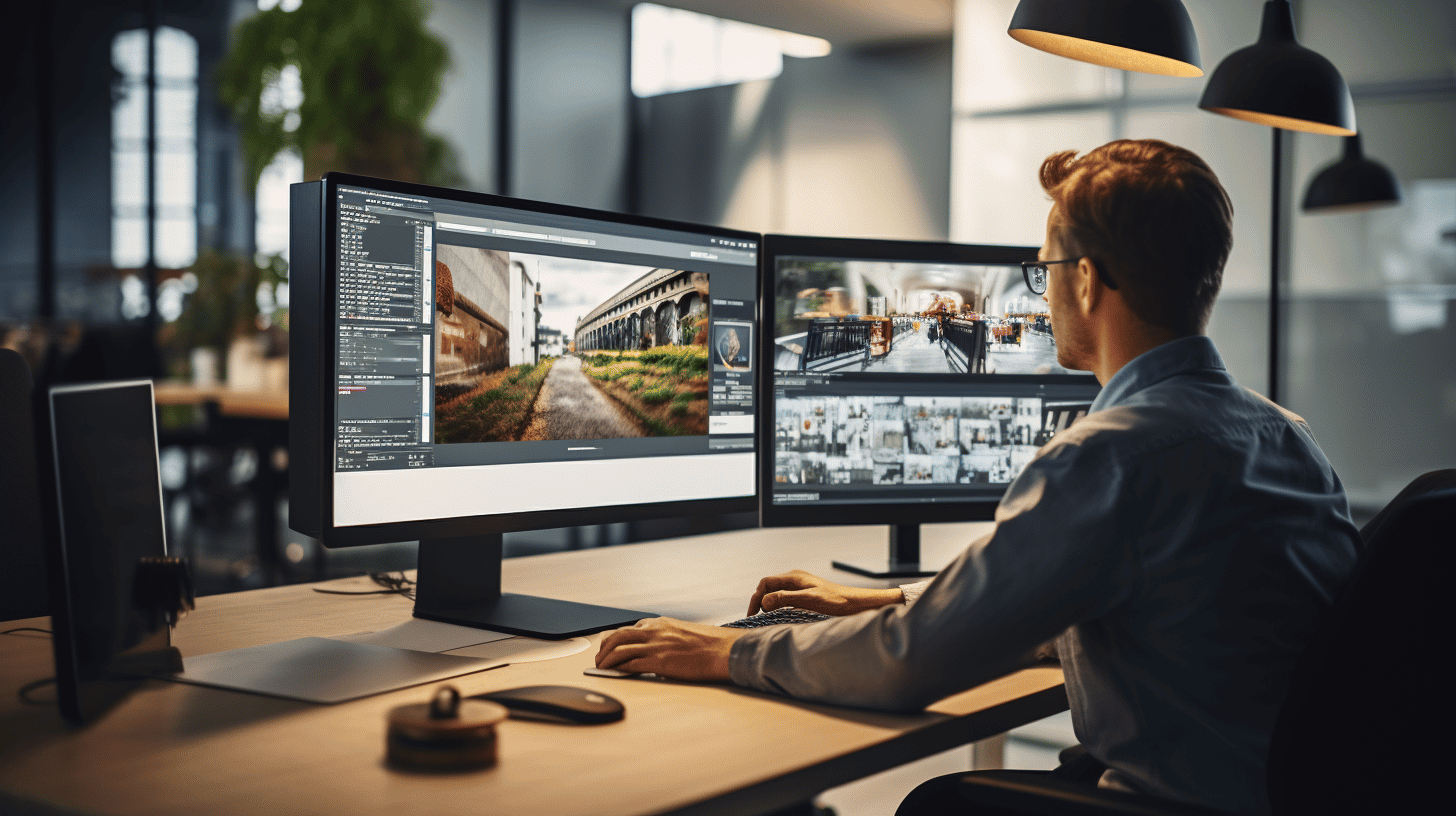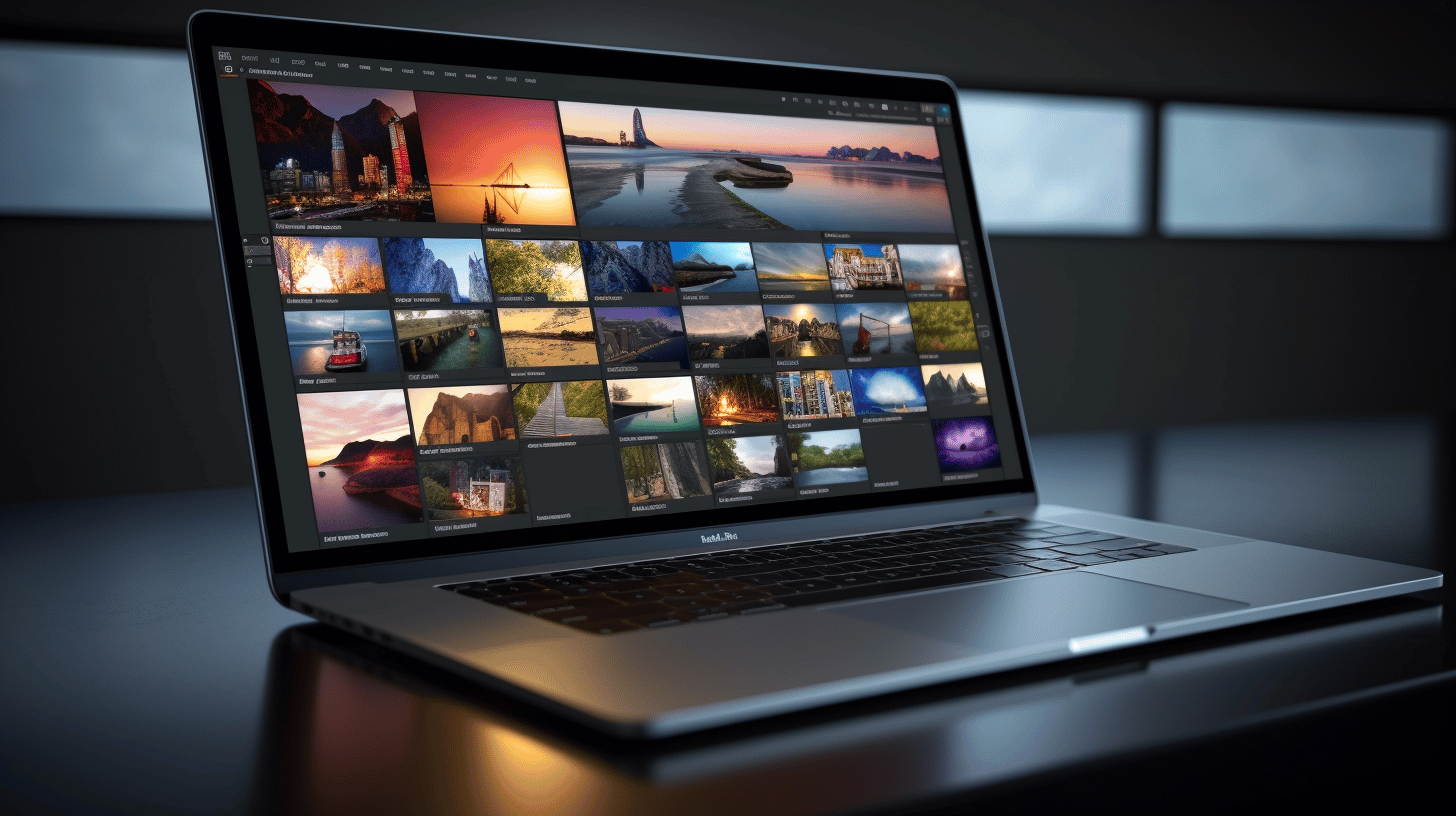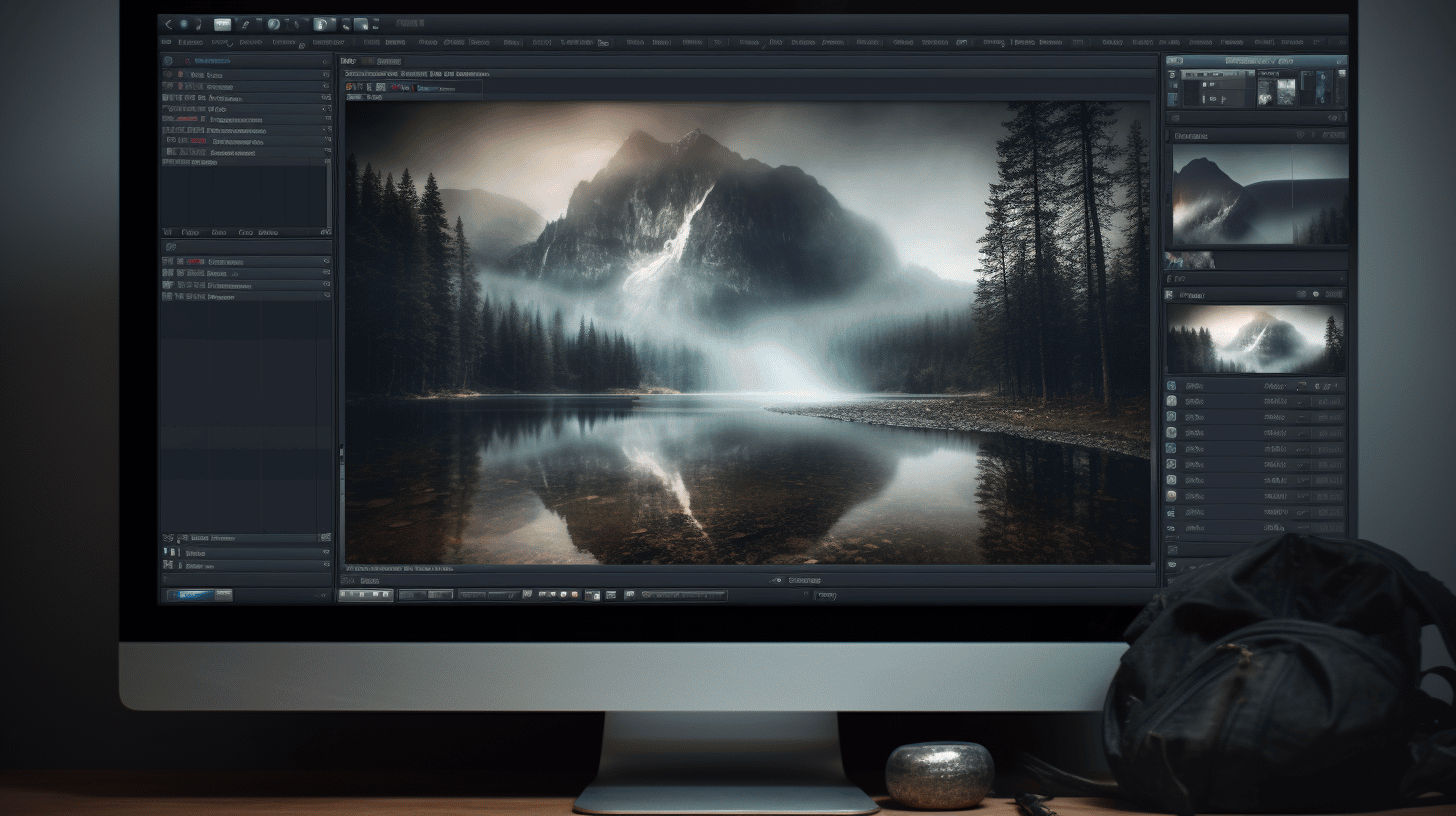Photography is a beautiful and expressive art form that allows us to capture special moments, landscapes, and emotions. Whether you’re a beginner just starting out or a professional looking to upgrade your gear, choosing the perfect camera is essential to enhance your photography journey. With an array of options available in the market, it can be overwhelming to pick the right one that suits your needs and budget.
In this comprehensive guide, we will explore the digital camera industry and provide insights into the market value, shipments, and revenue projections. We will also highlight the top cameras in various categories, including the best overall cameras, cameras for beginners, and cameras for professionals. Furthermore, we will discuss important factors to consider when choosing the right camera for your specific needs, such as compact cameras, budget-friendly options, and cameras ideal for beginners.
So, whether you’re an aspiring photographer looking to capture stunning landscapes or a seasoned professional aiming to take your craft to the next level, this guide will serve as your go-to resource for finding the perfect camera to embark on your photography journey. Let’s dive in and explore the exciting world of digital cameras!
Digital Camera Industry Overview
The digital camera industry is constantly evolving, driven by a combination of technological advancements and changing consumer preferences. Over the years, digital cameras have become more accessible, offering users the ability to capture high-quality images with ease. In this article, we will explore the current state of the digital camera industry, including market value, shipments, market share, and revenue projections.
Market Value and Shipments
The digital camera industry was valued at $8.2 billion in 2021[1]. While the market value has experienced fluctuations over the years, there is no denying the enduring popularity of digital cameras among consumers. Despite the rise of smartphone photography, dedicated digital cameras continue to attract photography enthusiasts and professionals alike.
In terms of camera shipments, the global market experienced a 15.2% decrease in 2022, with a total of 7.2 million units shipped[2]. This decline can be attributed to various factors, including the impact of the COVID-19 pandemic and the increasing competition from smartphones with advanced camera capabilities. However, this decrease does not diminish the overall significance of digital cameras in the photography industry.
Market Share and Revenue Projections
When it comes to market share, Canon remains the dominant player in the digital camera industry, accounting for nearly 50% of the market[3]. This is followed by Sony with a 26% market share and Nikon with 12%[3]. These three companies have established themselves as industry leaders, consistently providing innovative camera technology and meeting the needs of diverse photography enthusiasts.
Looking ahead, the market for digital cameras is projected to reach $22.9 billion in revenue by 2023, growing at a rate of 2.18% annually[4]. Despite the challenges faced by the industry, such as the rise of smartphone photography, the projected growth indicates that there is still a demand for high-quality dedicated cameras.
Furthermore, it is worth noting that mirrorless cameras have gained significant traction in recent years. In 2022, mirrorless cameras accounted for over 77% of camera sales[5]. This indicates a shift in consumer preferences towards compact and lightweight camera systems with advanced features and interchangeable lenses.
In conclusion, the digital camera industry continues to be a dynamic and resilient sector, catering to the needs of photography enthusiasts and professionals. Despite the rise of smartphones, digital cameras offer unique features and capabilities that cannot be matched by their mobile counterparts. With continuous innovation and technological advancements, the industry is expected to witness steady growth in the coming years.
[^1^]: [Source](#)
[^2^]: [Source](#)
[^3^]: [Source](#)
[^4^]: [Source](#)
[^5^]: [Source](#)
Top Cameras for Photography
When it comes to capturing stunning photographs, having the right camera can make all the difference. Whether you’re a seasoned professional or a budding enthusiast, investing in a high-quality camera can elevate your photography to new heights. In this article, we will explore the top cameras for photography, catering to different skill levels and needs. From overall best performers to cameras suited for beginners and professionals, we’ve got you covered.
Best Overall Cameras
If you’re in the market for the best camera for photography, there are a few standout options that consistently receive rave reviews from enthusiasts and professionals alike. These cameras offer a winning combination of exceptional image quality, advanced features, and reliable performance. Here are some of the top contenders for the title of the best overall cameras:
- Sony A7 IV: Regarded as the best camera for photography overall, the Sony A7 IV boasts a powerful full-frame sensor and top-spec autofocus. It is equipped to handle a wide range of shooting scenarios, making it a versatile choice for photographers of all genres.
- Nikon Z8: Another top-selling camera of 2022 is the Nikon Z8. This camera packs a punch with its impressive resolution and outstanding dynamic range. It’s no wonder why this camera is highly regarded by both professionals and enthusiasts.
- Canon EOS R6: The Canon EOS R6 is a favorite among photographers for its excellent image quality and advanced video capabilities. Packed with features, this camera is a great choice for those who want to excel in both still photography and videography.
- Sony a7R V: Sony’s a7R series has always been popular among photographers, and the latest addition to the lineup, the a7R V, is no exception. With its impressive resolution and superior image quality, this camera is a true powerhouse for capturing stunning photographs.
Best Cameras for Beginners
If you’re just starting your photography journey, it’s important to find a camera that is user-friendly and offers room for growth. The following cameras strike the perfect balance between ease of use and advanced features, making them ideal for beginners:
- Nikon D5600: The Nikon D5600 is the best camera for beginners, featuring a 24-megapixel sensor and compatibility with various lenses. It offers a range of shooting modes and intuitive controls, allowing beginners to experiment and learn at their own pace.
- Canon EOS Rebel T7: The Canon EOS Rebel T7 is another popular choice among beginners. With its user-friendly interface and guided shooting modes, it provides a seamless transition into the world of photography. The Rebel T7 also offers excellent image quality and a wide range of compatible lenses.
- Nikon D3500: The Nikon D3500 is a lightweight and portable DSLR camera that is highly recommended for beginners. Its simplified controls and helpful guide mode make it easy for beginners to learn the basics while still delivering impressive image quality.
Top Cameras for Professionals
For professional photographers, having a camera that can keep up with demanding shoots and deliver exceptional results is crucial. These cameras are geared towards professionals who require advanced features, robust build quality, and unparalleled image quality:
- Fujifilm GFX 100 II: When it comes to image quality, the Fujifilm GFX 100 II is unbeatable. This medium format camera delivers stunning detail and color reproduction, making it a top choice among professionals who prioritize image quality above all else.
- Canon EOS R3: Designed for sports and wildlife photography, the Canon EOS R3 is a specialized camera that offers lightning-fast autofocus, high-speed continuous shooting, and advanced tracking capabilities. It’s the go-to camera for professionals who need to capture fast-paced action with precision.
- Lumix S5 II: The Lumix S5 II is a lightweight and versatile full-frame camera that is perfect for professionals on the go. It offers exceptional image quality, impressive video capabilities, and a wide range of lenses to choose from. This camera is a great option for professionals looking for a compact yet powerful setup.
These are just a few examples of the top cameras for photography, catering to different skill levels and shooting preferences. Remember, the best camera for you ultimately depends on your specific needs and budget. So, take your time, do your research, and find the perfect camera that will help you capture your photographic vision with precision and artistry.
Choosing the Right Camera for Your Needs
When it comes to choosing the right camera for your photography journey, there are a few factors to consider. Whether you’re an amateur or a seasoned professional, having the right camera can make all the difference in capturing those memorable moments.
Compact Cameras
If portability is a priority for you, compact cameras are worth considering. These cameras are lightweight and easy to carry around, making them ideal for travelers and casual photographers. They offer a range of features, from basic point-and-shoot capabilities to more advanced settings for those who want more control over their shots.
- Compact cameras are great for everyday photography, such as family gatherings, vacations, and social events.
- They often have built-in lenses, eliminating the need for additional lens purchases.
- Some compact cameras come with wireless connectivity options, allowing you to share your images instantly with friends and family.
Budget-Friendly Cameras
For those on a tight budget, there are plenty of options available that won’t break the bank. These cameras offer good quality images while keeping costs down. They may not have all the bells and whistles of more expensive models, but they can still produce great results.
- Budget-friendly cameras are a great choice for hobbyists and beginners looking to explore photography without a significant investment.
- They usually have a range of shooting modes to suit different situations, making them versatile for various types of photography.
- These cameras often offer manual control options, allowing you to experiment and learn more about photography techniques.
Cameras for Beginners
If you’re just starting your photography journey, it’s essential to choose a camera that is user-friendly and offers helpful features for beginners. These cameras typically have intuitive controls and preset modes that make it easier for novices to get started.
- Cameras for beginners often come with built-in tutorials and guides to assist you in learning the basics of photography.
- They offer automatic shooting modes that take care of the technical settings, allowing you to focus on composition and capturing the moment.
- Many entry-level cameras have interchangeable lenses, giving you the flexibility to experiment with different focal lengths as you develop your skills.
No matter which type of camera you choose, it’s important to consider your specific needs and preferences. Take your time to research and compare different models while keeping in mind factors such as image quality, shooting capabilities, and overall usability. By finding a camera that suits your style and meets your requirements, you’ll be well on your way to capturing stunning photographs that tell your unique story.
Frequently Asked Questions
- What factors should I consider when choosing a camera?
When choosing a camera, consider factors such as your photography goals, budget, level of expertise, desired features (e.g., megapixel count, ISO range), camera size and weight, and compatibility with lenses and accessories.
- Should I buy a DSLR or a mirrorless camera?
Whether you should opt for a DSLR or a mirrorless camera depends on your preferences and needs. DSLRs offer optical viewfinders, longer battery life, and a wider selection of lenses, while mirrorless cameras are more compact, offer silent shooting, and often come with advanced features.
- What is the difference between full-frame and crop sensor cameras?
Full-frame cameras have larger image sensors, which result in better low-light performance, wider dynamic range, and shallower depth of field. Crop sensor cameras have smaller sensors, which result in a narrower field of view and a 1.5x or 1.6x crop factor on lenses.
- Do I need to consider video capabilities when choosing a camera?
If you plan to shoot videos, it’s important to consider a camera’s video capabilities. Look for features like 4K resolution, frame rate options, image stabilization, and microphone inputs. However, if you’re mainly interested in photography, video capabilities may not be a crucial factor.
- What are some recommended camera brands for beginners?
Some popular camera brands for beginners include Canon, Nikon, Sony, Fujifilm, and Panasonic. These brands offer a wide range of cameras suitable for different budgets and skill levels, along with excellent support and a variety of compatible lenses and accessories.




0 Comments